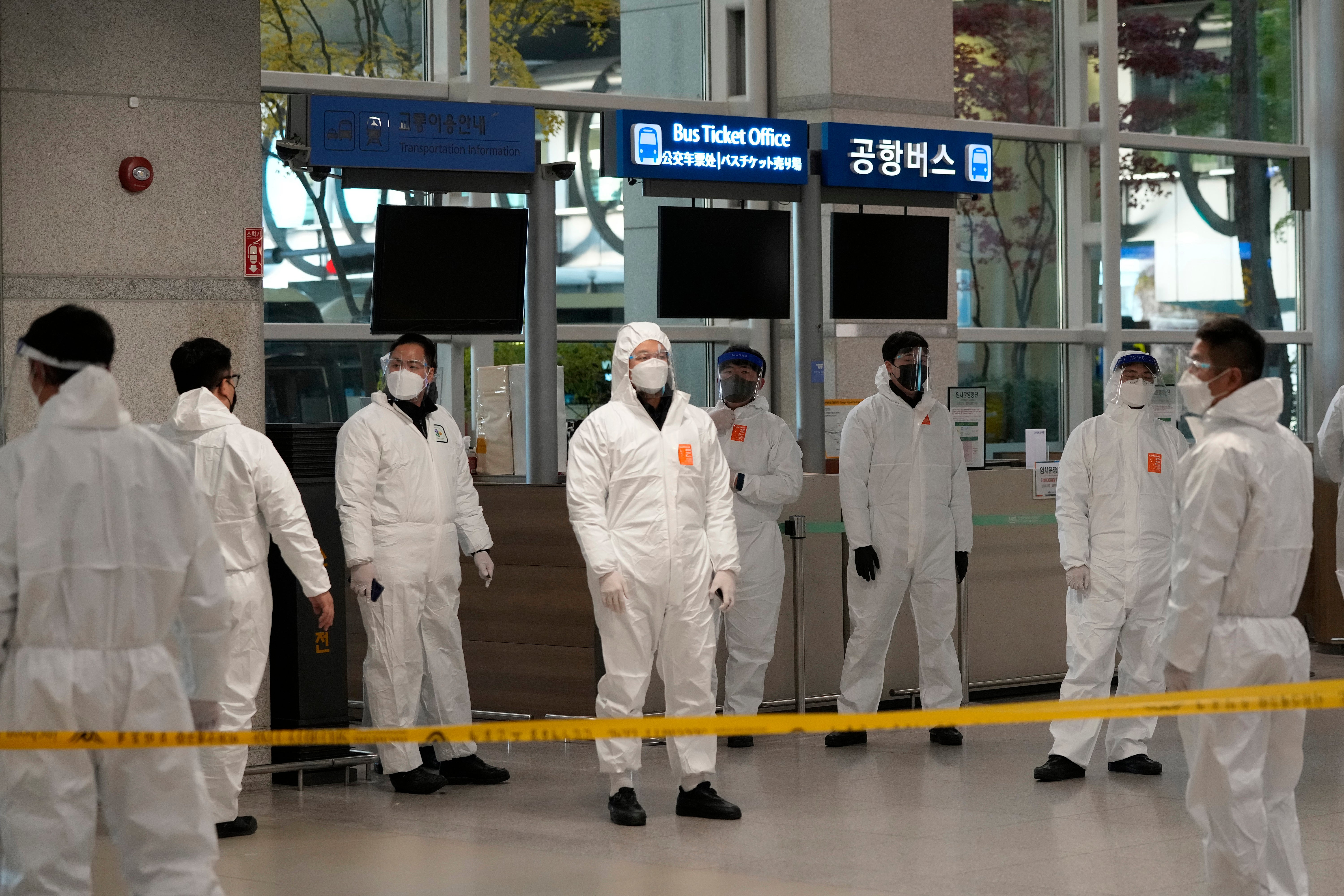South Korea reports five omicron cases on flight from Nigeria
South Korea’s daily Covid cases have exceeded 5,000 for first time

South Korea has reported its first five cases of the omicron variant while daily coronavirus infections have exceeded 5,000 for the first time, stoking concern over a sharp rise in patients with severe symptoms.
A fully vaccinated couple tested positive for the variant after arriving last week from Nigeria, followed by two of their family members and a friend, the Korea Disease Control and Prevention Agency (KDCA) said on Wednesday.
South Korea’s daily Covid-19 tally reached 5,123 on Wednesday, with the surge having started in early November after the country relaxed restrictions. The new variant prompted the government to halt plans for a further easing.
South Korea also said on Wednesday that a UN peacekeeping conference expected to draw more than 700 people to Seoul next week would now be held online.
The country has fully inoculated nearly 92 per cent of adults and is now focused on vaccinating children and a booster programme, but experts warned that cases would continue to rise until unvaccinated people obtained immunity through infection.
“The authorities could bring down the number of cases by re-introducing some of the social distancing measures” said Jung Jae-hun, a professor of preventive medicine at Gachon University.
South Korea said hospitals were treating 723 patients with severe Covid-19, a record number.
Nearly 90 per cent of intensive care unit beds in the greater Seoul area are occupied, with 842 patients waiting for admission.
The Korean Medical Association urged the government to set up treatment facilities and allow antibody treatment for high-risk patients before they develop severe symptoms.
Authorities will secure at least an additional 1,300 hospital beds by mid-December, Interior and Safety Minister Jeon Hae-cheol told a Covid-19 response meeting.
More than 84 per cent of the severely ill patients were aged 60 and above. Experts had pointed to waning antibody levels from the vaccines and urged the elderly to get boosters.
Tuesday’s new cases bring South Korea’s total to 452,350, with 3,658 deaths. Despite the rising hospitalisation rate, the mortality rate remains relatively low at 0.81%, KDCA data shows.
Join our commenting forum
Join thought-provoking conversations, follow other Independent readers and see their replies
Comments
Bookmark popover
Removed from bookmarks